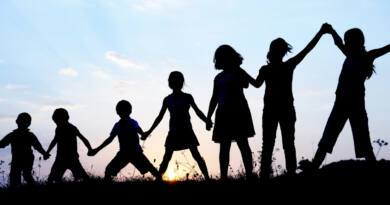Loneliness: How To Overcome Social Isolation
In today’s fast-paced, digital world, loneliness has spread like wildfire, impacting people of all ages and backgrounds. The growth in despair, anxiety, and chronic loneliness is cause for concern, as the Centres for Disease Control and Prevention (CDC) warn that social isolation poses health risks comparable to smoking or obesity. Given these critical challenges, there is an increased demand for techniques to alleviate loneliness, develop strong connections, and enhance mental and emotional well-being.
Let us discuss the terrible impact of loneliness, the value of community, and the power of vulnerability in developing genuine connections with others.
Loneliness: An Epidemic Caused By Social Changes
Loneliness has increased dramatically in recent years, fueled by factors like urbanisation and the COVID-19 pandemic. Experts describes the quick rise of loneliness as a post-industrialization phenomenon in which individuals relocated to distant cities in quest of economic possibilities, abandoning their tribes and ancestral villages. The decline of close-knit communities, which provided support and companionship, has greatly contributed to the loneliness epidemic.
Furthermore, the rise of individualism and the “I, me, mine” culture have isolated people in their pursuit of financial wealth. The vulnerability and interdependence are fundamental components of our human nature, as our brains are wired to connect. Cooperation and teamwork, rather than isolation and self-reliance, are what help us survive as a species. Recognising this underlying need for connection is critical to solving the prevalent problem of loneliness.
The Power of Vulnerability and Meaningful Relationships
To overcome loneliness, the significance of making deep and meaningful connections is very vital. Superficial connections and a sense of fitting in are insufficient; true belonging comes from candid conversations in which people may openly share their longings, anxieties, and wounds. Experts proposes forming small groups focused on genuine belonging and sincere communication. Participating in activities such as organised sports, art, music, or volunteering can help you connect with others who share your interests, allowing for deeper interactions and bonding.
When it comes to tackling youth difficulties, experts emphasises the importance of promoting outdoor activities, team sports, and collaborative creative hobbies. Boys and men, in particular, frequently fail to build lasting friendships owing to social conditioning. Individuals can break down societal barriers and form meaningful connections with others by participating in activities that foster emotional closeness and vulnerability.
In the South Asian immigrant community, getting help for loneliness and mental health issues can be fraught with shame and stigma. Experts emphasises the need to break this cycle by recognising that seeking help is not a sign of weakness or failure. Sharing stories and experiences can help normalise the human condition by validating people’s hardships and reducing feelings of loneliness.
The Journey Towards Authenticity
Experts emphasises the importance of gender and cultural elements in influencing social experiences and communication patterns. In many houses, women often serve as social directors, building community relationships. Historically, males formed strong and emotionally intimate friendships, which were regarded as more meaningful than their ties with their spouses. Over time, cultural developments and societal constraints have suppressed men’s emotional intimacy, making it more difficult for them to participate in vulnerable interactions.
To promote vulnerable social communication, experts advocates defying cultural norms and embracing genuineness. There is a need to overcome perfectionism and fear of judgement. By exposing their grief, discomfort, and personal problems, people can establish a safe space for open discourse and true connection. Most of the experts promotes a psycho-spiritual approach that combines psychological insights with spiritual activities in order to treat inner fragmentation and create an integrated and true self.
Creating Community From Within
The quest to battle loneliness and develop meaningful friendships begins within. Experts emphasises the importance of self-connection and self-awareness as the basis for meaningful interactions. Individuals who build a strong connection with themselves and embrace all parts can transcend the projection of their own troubles onto others and form more authentic friendships.
Experts suggests creating a community or a club as a way to make lasting connections beyond superficial small talk. This would encourage to seek out or establish such spaces, emphasising the potential of shared experiences to alleviate loneliness and develop a sense of belonging.
Finally, overcoming loneliness takes a collaborative effort. People should be encouraged to embrace vulnerability, listen without judgement, and actively seek possibilities for deep and meaningful interactions. We can create a culture in which loneliness is no longer an epidemic but rather an experience shared and overcome together by prioritising honest communication and strengthening supportive networks.
To summarise, as society grapples with the growing epidemic of loneliness, it is critical to recognise the fundamental need for human connection. We can prevent loneliness and promote mental health by combining vulnerability, real communication, and cultivating meaningful relationships.
Disclaimer: The WFY website aims to share experiences, opinions, and information on various topics. However, it is important to note that the author of this blog does not possess any professional authority or expertise, especially in subjects related to health, medical advice, or legal matters. The information provided on this website is based on personal experiences, research, and general knowledge. While we strive to provide accurate and up-to-date information, we cannot guarantee the completeness, reliability, or accuracy of the content. Therefore, any action you take based on the information found on this blog is at your own risk. The contents of this blog should not be considered a substitute for professional advice or consultation from experts in the respective fields. If you require specific advice or assistance, we strongly recommend consulting with a qualified professional. The WFY (website) and its author will not be liable for any errors, omissions, or any losses, injuries, or damages arising from the use or reliance on the information presented on this blog. It is your responsibility to verify any information obtained from this blog and to use it at your own discretion. Please note that the opinions expressed in the articles and comments on this blog are those of the respective authors and do not necessarily reflect the views of the website owner or any associated individuals. By using this website, you acknowledge and agree to the above disclaimer. If you do not agree with this disclaimer, please refrain from using this website.




